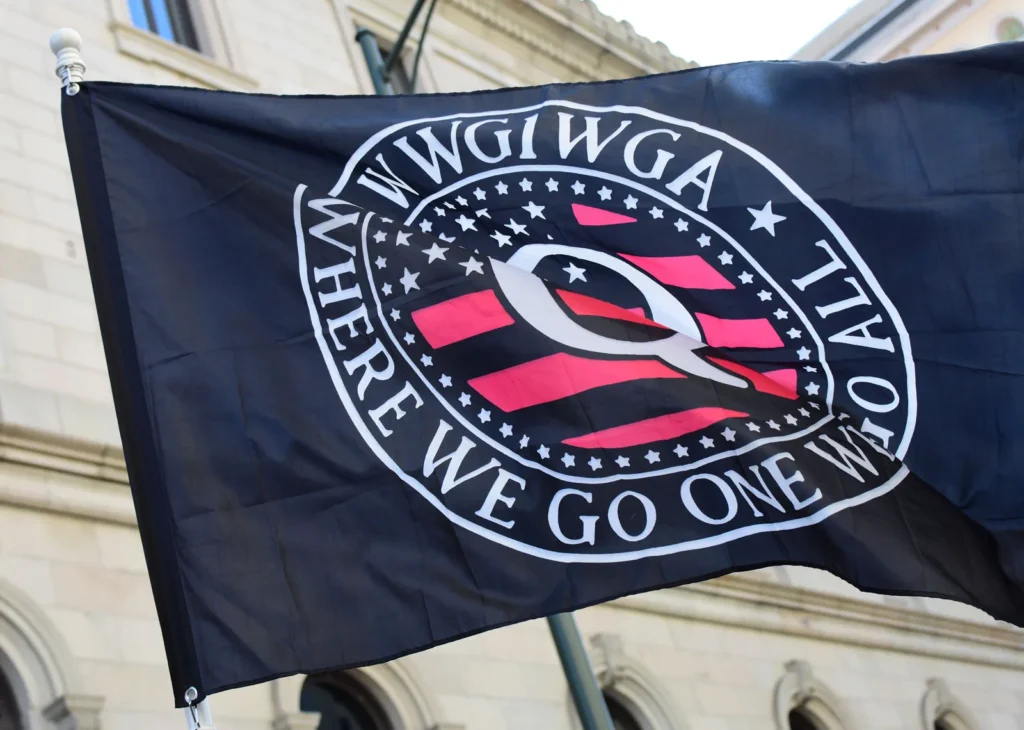In recent years, a mysterious and dubious movement called QAnon emerged from the depths of the internet, captivating a fervent following and leaving a lasting imprint on American politics. With its outlandish conspiracies and unfounded claims about a secret global cabal, QAnon found a champion in former President Donald Trump. Now, as the dust settles after Trump’s presidency, it is essential to examine the influence of QAnon and investigate its current status.
The Birth of QAnon
The origins of QAnon can be traced back to late 2017, when an anonymous user identifying as “Q” began posting cryptic messages on online imageboards. Claiming to possess insider knowledge, Q propagated theories of a deep-state conspiracy aimed at undermining Trump’s presidency. These messages sparked a wildfire of speculation and fervor among a growing number of supporters, taking the form of a movement known as QAnon.
QAnon’s Impact on Trump
Although skeptical at first, Trump inadvertently played an instrumental role in propelling QAnon into the mainstream. His strategic deployment of divisive rhetoric and his refusal to directly denounce the movement created a symbiotic relationship. QAnon supporters interpreted Trump’s vague endorsements and retweets as confirmation of their conspiracy theories, further strengthening their resolve and bolstering the influence of the movement.
Conspiracies Fueled by QAnon
QAnon’s core beliefs center around the notion of a secret global pedophile ring, operating within the confines of a “deep state” apparatus. These theories, lacking any credible evidence, propagated through various channels, attracting followers from different spheres of society. QAnon supporters wove intricate webs of conspiracy theories, asserting that powerful political figures were orchestrating a grand plot against Trump.
Aberrant Behavior and Real-World Consequences
The impact of QAnon extended far beyond the realm of online forums. The movement’s followers were involved in real-world incidents that showcased the dangerous potential of unchecked conspiratorial beliefs. From the Pizzagate incident to the storming of the U.S. Capitol in January 2021, acts of violence and misinformation were perpetuated by individuals aligned with QAnon’s ideology.
QAnon’s Decline
Following Trump’s electoral defeat and subsequent departure from the presidency, QAnon faced a significant blow. The absence of the movement’s greatest ally diminished its visibility and influence. Social media platforms took measures to curb the dissemination of QAnon-related content, further restricting its reach. However, it is crucial to remain vigilant, as the movement is adept at adapting to new platforms and mutating its core tenets to survive.
Current State and Skepticism
QAnon, now fractured and marginalized, continues to exist on the fringes of political discourse. It serves as a stark reminder of the danger posed by unfounded conspiracy theories in an era of widespread misinformation. However, its diminished influence does not entirely eradicate the underlying factors that gave rise to such beliefs – political polarization, economic uncertainty, and a general erosion of trust in institutions.
Haunting and Divisive
QAnon emerged as a haunting and divisive force during Trump’s presidency, fueled by the influence of social media and the echo chambers it cultivates. The movement’s conspiratorial narratives captivated followers who found solace in the simplicity of an alternate reality. Although its influence has waned in recent times, its existence serves as an alarming testament to the potential dangers posed by the erosion of critical thinking and the unchecked spread of misinformation.
As society moves forward, it is imperative to evaluate and address the root causes that allow movements like QAnon to take hold. By promoting media literacy, fostering open dialogue, and rebuilding trust in institutions, we can hope to prevent the birth of future conspiratorial movements and protect the integrity of democracy.
